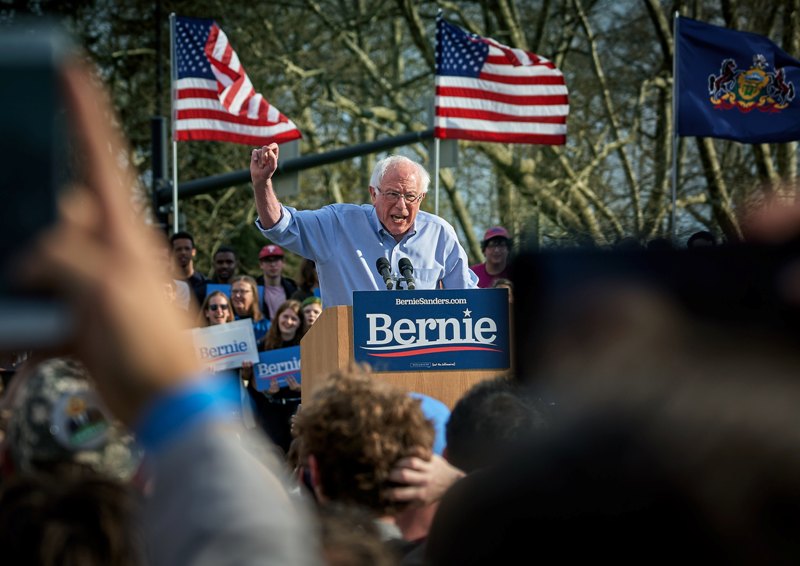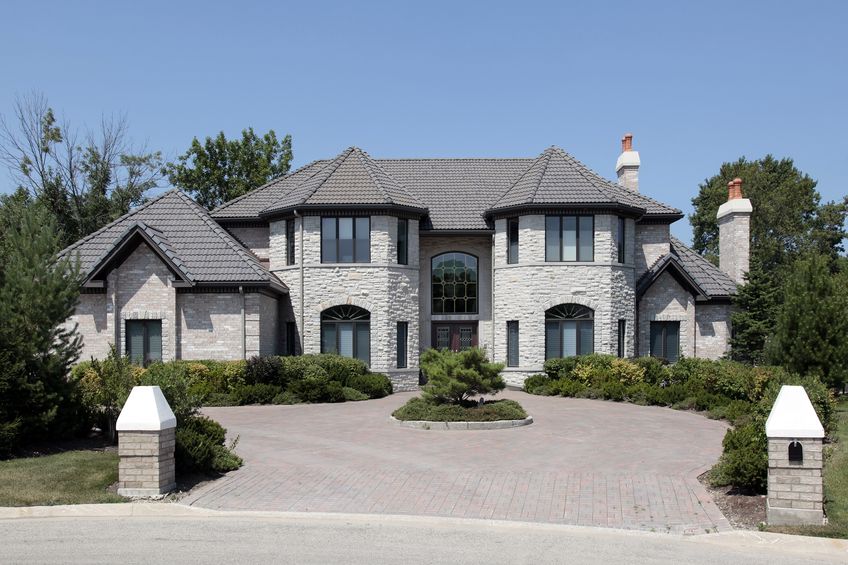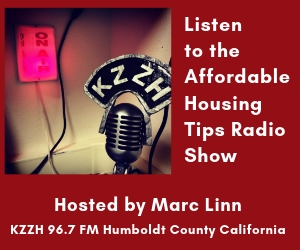
Sander peppered his speech with references to his humble upbringing growing up in a rent-controlled apartment in Brooklyn, New York, where his family lived paycheck to paycheck. According to Sanders, without rent control his family could not have afforded New York City’s outrageous housing prices. Their rent could not be arbitrarily raised, an economic security he says does not exist for many Americans today.
Federal Rent Control on the Horizon?
It’s his childhood experiences that might be the impetus for Sanders’ proposed federal rent control policy. Sanders congratulated New York, Oregon, and California for recently implementing statewide rent control mandates. But he doesn’t think statewide rent control will be enough in the future. He’s proposing a federal program to protect people against excessive rent increases.
Sanders says, “It is clear that in the midst of this national housing emergency we need federal policy that protects people from the greed we are seeing in the real estate industry.”
He says it’s bad news that 32 states preempt or limit the ability of communities to establish rent control. His solution is a federal policy that caps rent increases at no more than 1½ times the rate of inflation or 3%, whichever is higher.
What Sanders didn’t mention in his speech was how he would handle pushback from states that oppose rent control. Instead he focused on the need for swift action at the federal level.
Nor did he address any of the common concerns regarding the unintended consequences of rent control. This includes how it discourages developers from building new units, reduces the overall supply of rental housing by encouraging people to convert their rental units to condos, and leads to the physical deterioration of apartment complexes when landlords can’t pass along the cost of renovations to their tenants.
Show Me the Money: How to Spend $2.5 Trillion
Sanders says his affordable housing plan will cost the country $2.5 trillion over the next decade. He threw out big numbers in his speech but gave few details about the actual implementation of his proposals.
However, he did give a rough idea of how some of the money would be spent. About $32 billion over the next five years would go toward ending homelessness in America. About $70 billion would go to cities and communities to repair and expand dilapidated public housing stock.
And $50 billion would be spent on grants for community land trusts. According to Sanders, the land trust concept has been successful in his home state of Vermont. He says it enables people to enjoy the advantages of home ownership while keeping housing affordable.
His plan would preserve 7.4 million units of existing housing. It would create 2 million units of new mixed-income housing across the country. An added benefit of this flurry of construction activity would be the creation of “many good paying union jobs,” a point not lost on his audience of union members.
A significant portion of this “Housing for All” program would go toward fully funding the government’s Section 8 rental assistance program. According to Sanders, “every American who is eligible would receive assistance without being put on a waiting list.”
The plan also includes a permanent expansion of the National Affordable Housing Trust Fund, which gives money to states to help construct and preserve affordable housing for low-income people. This is in stark contrast to the Trump administration’s plans for drastic cutbacks to the fund.
The money for all this spending on affordable housing will have to come from somewhere. Sanders wants the top one-tenth of 1 percent of wealthy Americans to pay more in taxes. He estimates the wealthiest 175,000 American families will pay for his new policies.
Heavy on Sound Bites But No Details Yet…
Sanders left the exact details of how his ambitious affordable housing plan would be implemented for another day. The purpose of his speech seemed to be to join the other Democratic hopefuls in pounding the drum regarding the nation’s desperate need for solutions to the affordable housing crisis.
We’ll have to wait at least another month for Sanders’ team to release their full report outlining the new plan. In the run-up to the Democratic presidential nomination, we’re likely to hear plenty of debate from the candidates on the pros and cons of each proposal.
Whatever the outcome, the good news is we’re beginning to see a glimmer of hope now that affordable housing is taking center stage in national politics. Sanders makes this point quite convincingly in his speech:
“We have an affordable housing crisis in Nevada, in Vermont and all over this country. Too often it’s pushed under the rug, but we’re going to talk about it today. Over 18 million families in America are paying over 50% of their limited incomes on housing. Think about it, if you’re spending 50% of your limited income on housing, how do you pay for food, how do you pay for transportation, how do you pay for healthcare, how do you pay for prescription drugs, education, and childcare when you are spending so much on rent or your mortgage? There is virtually no place in America where a full-time minimum wage worker can afford a decent two bedroom apartment and that is not acceptable. If you are working 40 hours a week and you are working hard then you deserve a safe and affordable place in which to raise your family.”
More “Government Programs” Articles
 Why Housing Lotteries Turn to Facebook and Zoom During Pandemic
Why Housing Lotteries Turn to Facebook and Zoom During Pandemic
People are lining up to enter “virtual” housing lotteries. Is new technology the solution to affordable housing crisis? Read More
 Amazon Builds Homeless Shelter in New Headquarters
Amazon Builds Homeless Shelter in New Headquarters
Plus, Jeff Bezos pledges $2 billion toward homelessness and education. Read More
 Don’t Let This Medicare Myth Wipe Out Your Retirement Nest Egg
Don’t Let This Medicare Myth Wipe Out Your Retirement Nest Egg
What you don’t know about Medicare could cost you a small fortune. Learn how to protect your retirement dreams. Read More
 7 Surprising Facts Anyone Entering a Housing Lottery Should Know
7 Surprising Facts Anyone Entering a Housing Lottery Should Know
These housing lottery facts spotlight little-known secrets about this growing trend in housing. Millions have affordable new homes. Will you be next? Read More
 PACE: An Affordable Housing Alternative to Nursing Home Care
PACE: An Affordable Housing Alternative to Nursing Home Care
Discover the affordable housing alternative that lets seniors age in place and avoid expensive nursing homes. Read More
 Would You Live in a “Zombie Property?” These Might Tempt You…
Would You Live in a “Zombie Property?” These Might Tempt You…
With low prices and modern amenities, renovated “zombies” are becoming a favorite among bargain house hunters. Read More
 How Zombie Foreclosures Haunt Homeowners
How Zombie Foreclosures Haunt Homeowners
The number of zombie foreclosures reached an all-time high during the Great Recession. Could they make a comeback if the latest housing bubble pops? Read More
 Affordable Housing Lottery: 7 Tips for Winning Your New Home
Affordable Housing Lottery: 7 Tips for Winning Your New Home
Winning an affordable housing lottery is a daunting task. But these tips give you a leg up over the competition. Read More
 Want to Win a Housing Lottery? Check out this Q&A Guide
Want to Win a Housing Lottery? Check out this Q&A Guide
You might be surprised how you could turn a housing lottery into a bargain-priced home. Read More
 Homelessness in Seattle Caused by Drugs? Well, maybe not…
Homelessness in Seattle Caused by Drugs? Well, maybe not…
Homelessness in Seattle caused by drugs? Or is housing just too damned expensive? Read More
 Rent Control in Oregon Signed into Law—Will Renters Benefit?
Rent Control in Oregon Signed into Law—Will Renters Benefit?
For some, rent control in Oregon seems like a good idea. But is it really? Will renters benefit and if so, for how long? Read More
 Mansions Now Among the Best Cheap Homes for Rent in Vancouver
Mansions Now Among the Best Cheap Homes for Rent in Vancouver
Beer budget but champagne tastes? Not to worry — new tax laws mean some lucky folks can now afford to rent luxury homes! Read More




